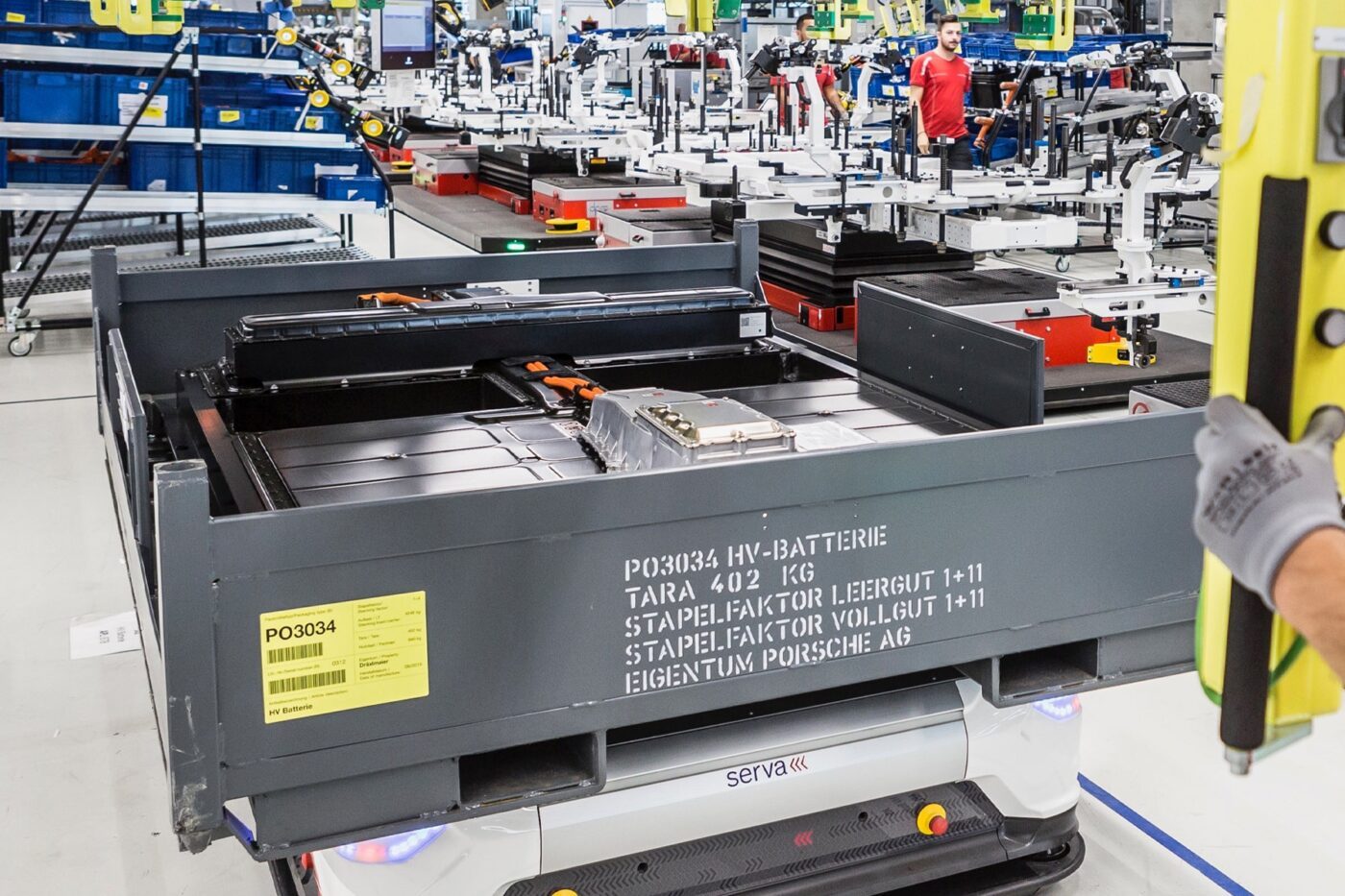Battery factories: Europe’s mechanical engineering companies are lagging behind
The “Battery Manufacturing 2030: Collaborating at Warp Speed” report is 52 pages long. According to the authors, the 200 battery factories mentioned will be built worldwide over the next ten years. “And production technology worth billions is needed for each of these factories,” say Porsche Consulting and the German Engineering Federation (VDMA). The sticking point: according to the study, factories are currently equipped primarily with Asian production technology. A press release accompanying the study’s publication states, “Chinese mechanical engineering companies are currently setting the standard as complete suppliers.”
Only eight per cent of the high-tech equipment in such factories currently comes from Europe. According to the study initiators, this share is too low to have a formative influence on technical development and to create a second cluster for battery technology in Europe. “This would require a permanent market share of about 20 per cent.”
However, the study not only looks at the current situation but also identifies possible solutions to prevent the threat of technological dependency in this field. To this end, the authors draw on analyses of technology and providers, forecasts from their own market models and a series of interviews with market participants. The main tenor is that cooperation between those involved will play a decisive role.
Only if European mechanical engineering firms succeed in jointly offering integrated factory solutions will they be able to hold their own against the competition from Asia,” says Gregor Grandl, Senior Partner at Porsche Consulting and co-author of the study. “Technologically, European industry is on an equal footing, but companies from China are already offering turnkey battery plants.” It reduces interfaces, as well as the time and financial risk during construction.
One of the study’s findings is that the German and European mechanical engineering industry is well aware of its situation. Rapid growth opportunities and risks are immense: “In order to maintain a market share of just 8 per cent in the battery market during a rapid ramp-up, growth rates of 33 per cent per year would be necessary,” the study states. And to achieve a market share of 20 per cent, companies would have to grow faster than the market: “A roughly 50 per cent increase in sales per year would be necessary — and possible.” According to the report, the market volume for machine and plant manufacturers in the battery sector alone will be 300 billion euros by 2030.
A brief word about the study initiators: According to its own information, the VDMA represents more than 3,600 member companies. The latter employ around three million people in the EU-27, including more than 1.2 million in Germany. There are 400 companies organised in the VDMA Robotics + Automation sub-association, and 170 companies in VDMA Battery Production.
Porsche Consulting, for its part, was spun off from Porsche’s internal consulting unit in 1994. Today, the company offers consulting services in production and logistics, procurement and quality, research and development, corporate development, sales and marketing, human resources and culture, and finance. The Porsche subsidiary has 840 employees at a dozen locations in Germany, France, Italy, the USA, Brazil and China.
newsroom.porsche.com, porsche-consulting.com (Study as PDF)





0 Comments